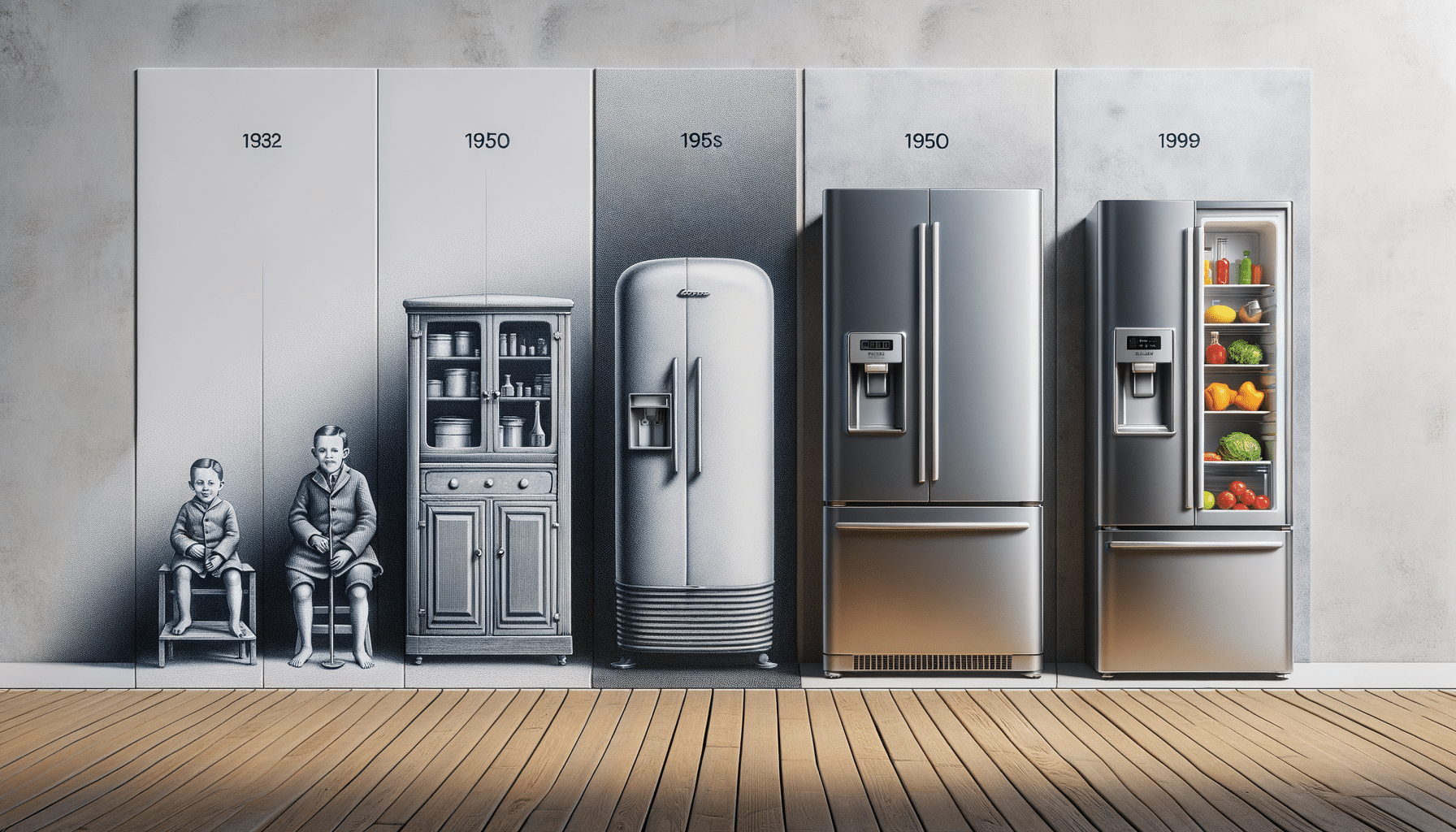
Traversing the Journey of Modern Refrigerators
The Humble Beginnings of Refrigeration
The story of refrigeration begins in the early 19th century with the quest to preserve food and keep it fresh for longer periods. Before the invention of mechanical refrigeration, people relied on natural methods such as storing food in cool cellars or using ice harvested from frozen lakes. The first significant breakthrough came with the invention of the icebox, a simple wooden box lined with tin or zinc and insulated with materials like sawdust or cork. Iceboxes became a staple in households, but they required a constant supply of ice, which was not always readily available.
The real transformation began with the development of the first mechanical refrigerators in the 1830s. These early models used vapor compression cycles and were primarily used for commercial purposes. It wasn’t until the early 20th century that refrigerators became more accessible to the general public. This period saw the introduction of electric refrigerators, which revolutionized food storage by eliminating the need for ice. By the 1920s, refrigerators had become a common household appliance, paving the way for further innovations in the field.
Technological Advancements and Innovations
As technology advanced, so did the design and functionality of refrigerators. The mid-20th century saw significant improvements in efficiency and design. Refrigerators became more compact, stylish, and energy-efficient. The introduction of Freon as a refrigerant in the 1930s marked a significant milestone, as it was non-toxic and non-flammable, making refrigerators safer for home use. However, environmental concerns later led to the phase-out of Freon and the adoption of more environmentally friendly refrigerants.
Modern refrigerators boast a range of innovative features that enhance convenience and efficiency. From frost-free technology to adjustable shelving and temperature-controlled compartments, today’s refrigerators are designed to cater to the diverse needs of consumers. Some models even come equipped with smart technology, allowing users to monitor and control their refrigerator remotely via smartphone apps. These advancements have not only improved the user experience but also contributed to energy savings and reduced environmental impact.
The Role of Design in Refrigerator Evolution
Design has played a crucial role in the evolution of refrigerators. Early models were bulky and utilitarian, focusing primarily on functionality. However, as consumer preferences evolved, so did the design of refrigerators. The sleek, stainless steel models that are popular today reflect a shift towards aesthetics and modernity. Manufacturers have also introduced a variety of colors and finishes to cater to different tastes and kitchen styles.
In addition to aesthetics, ergonomic design has become an important consideration. Features such as adjustable shelves, door-in-door compartments, and easy-to-reach drawers enhance the usability of refrigerators. The integration of technology into design has further transformed the refrigerator from a simple appliance to a sophisticated kitchen centerpiece. With touch screens, digital displays, and voice-activated controls, modern refrigerators are a testament to the seamless blend of form and function.
Environmental Impact and Energy Efficiency
As awareness of environmental issues has grown, the focus on energy efficiency and sustainability in refrigerator design has become more pronounced. Refrigerators are among the most energy-intensive appliances in a household, making energy efficiency a critical factor in their evolution. The introduction of energy-efficient models and the implementation of stringent energy standards have significantly reduced the carbon footprint of refrigerators.
Many modern refrigerators are ENERGY STAR certified, indicating that they meet or exceed energy efficiency guidelines set by regulatory bodies. These models consume less electricity, resulting in lower energy bills and reduced environmental impact. Additionally, the use of eco-friendly refrigerants and recyclable materials in manufacturing further contributes to sustainability efforts. As technology continues to advance, we can expect even more innovations aimed at minimizing the environmental impact of refrigerators.
The Future of Refrigeration Technology
The future of refrigeration technology holds exciting possibilities. As smart home technology continues to evolve, refrigerators are becoming more integrated into the digital ecosystem of homes. Features such as inventory tracking, automated grocery ordering, and recipe suggestions based on available ingredients are becoming increasingly common. These smart features not only enhance convenience but also help reduce food waste by ensuring that food is used before it spoils.
Another area of innovation is the development of alternative cooling technologies. Researchers are exploring options such as magnetic refrigeration, which uses magnetic fields to cool without the need for conventional refrigerants. This technology has the potential to further reduce the environmental impact of refrigeration. As the demand for more sustainable and efficient appliances grows, the refrigeration industry is poised for continued evolution and modernization.

